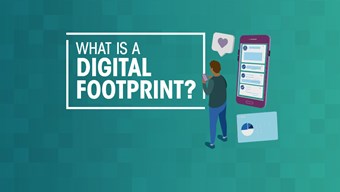Soft skills has become something of a buzzword in the global business environment. As CVs come flying in from highly-qualified candidates, companies have needed to use other parameters to measure a candidate’s suitability and soft skills have become the yardstick.
By Editorial Team. Published 27 March 2019. Last updated 29 October 2020.
At The University of Law Business School our Employability Service coaches our students on these skills, to ensure they stand out to employers. So what are soft skills and why are they the new big thing that employers are looking for?
What exactly are soft skills?
There is no definitive list of soft skills. The term covers a wide spectrum of character traits and interpersonal skills that, generally, reflect how you interact with people. Some of the most commonly cited and recognised by employers as being desirable largely cover interacting with other people, such as communication, empathy, conflict resolution and listening. They can also cover skills such as problem solving, decision making, critical thinking, and adaptability. Others that fall under this umbrella might be time-management, attitude and flexibility.
Soft skills are arguably more challenging to develop, since they have little to do with knowledge or expertise, but are instead closely linked with a person’s character. It requires a commitment to self-development and ongoing practice to improve your soft skills. In comparison, hard skills are more learned, technical and knowledge-based skills that you can develop, for example, through higher education. It goes without saying that these skills are also vital to establishing your success, and work in tandem with your soft skill set.
Why are they important?
While building the right educational foundations and earning appropriate qualifications are important, they’re not enough to determine success in the modern age. The more widely accepted, holistic mantra for the 21st century is that soft skills and a willingness to learn is the natural pathway to success, rather than worrying solely about the mechanics of the job itself. So the theory goes: success will come if you focus on developing yourself.
To understand the importance of soft skills in the modern age, let’s look at the stats. A study conducted by Harvard University suggested that as much as 80% of achievements in an individual’s career are determined by soft skills and only 20% by hard skills. Other studies conducted go even further – changing those figures to 85% and 15% respectively. This doesn’t reduce the importance of hard skills of course; it just goes to emphasise the importance of the skills that have, until recently, been overlooked.
A public interest study conducted by McDonald’s in the UK predicted that over half a million people will be held back from job sectors by 2020 due to their lack of soft skills. This is because soft skills can be hugely important in giving you the edge in an increasingly competitive job market. The majority of employers today are looking to hire, retain, and promote individuals who are resourceful, ethical, dependable and self-motivated. Having effective communication, a willingness to work and learn, and having a positive attitude go a long way in the modern workplace.
Not to mention that soft skills also give your hard skills a chance to shine. If you have the ability to communicate effectively with others in a workplace, then your ideas are more likely to take off, and abilities utilised to their full capacity.
How can you work on them?
A good starting point is to focus on your communication abilities: listen to other people in conversation, and respond to what they are saying; try and articulate yourself with clarity, and in a simple manner; concentrate on your body language; think about eye contact. These things are taken for granted by many, but making a conscious effort to improve your communication abilities can be the cornerstone of your success.
Of course, the internet is a great resource for these things. Many education portals offer professional courses that can develop things like public speaking and presentation skills, and even more directly ‘Improving Communication’ programmes. Some workplaces even offer professional development initiatives too – such as teambuilding activities and leadership courses.
It would seem that at the centre of achieving success is building and maintaining core skills that can help you in any job, throughout your life. If you become more confident in the way you interact with others, lead, and work in teams, opportunities will arise in both your personal and professional life.
Check out our website for more information on the soft skills you could learn about on our online law and online business courses.



